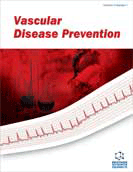
Abstract
Hypertension related decrements in cognitive functioning have been documented in those without clinical evidence of vascular disease and in individuals unaware of their hypertension. Impaired cognition in asymptomatic hypertensives may or may not be altered by antihypertensive therapy. We have examined the effect of three months of ramipril therapy on ambulatory blood pressure, cognitive function, lipid peroxidation and nitric oxide levels. Thirty male asymptomatic, newly diagnosed hypertensives were administered ramipril 5mg daily orally. Ambulatory blood pressure was recorded before and after three months of therapy. Cognitive function was assessed using event related potentials (N2 and P300 waveforms). Malondialdehyde was used as a marker of lipid peroxidation and serum nitrite levels were used as an index of nitric oxide levels. Along with the antihypertensive effect, three months of ramipril therapy improved the P300 but not the N2 latency. There was a positive correlation between the P300 latency and the systolic blood pressure parameters of the ambulatory blood pressure. The serum nitrite levels were increased and the malondialdehyde levels were decreased after therapy. Thus ramipril may improve some aspects of cognitive function by affecting the serum nitrite and lipid peroxidation pathways.
Keywords: Ramipril, cognition, P300, serum nitrite, hypertension
 3
3


